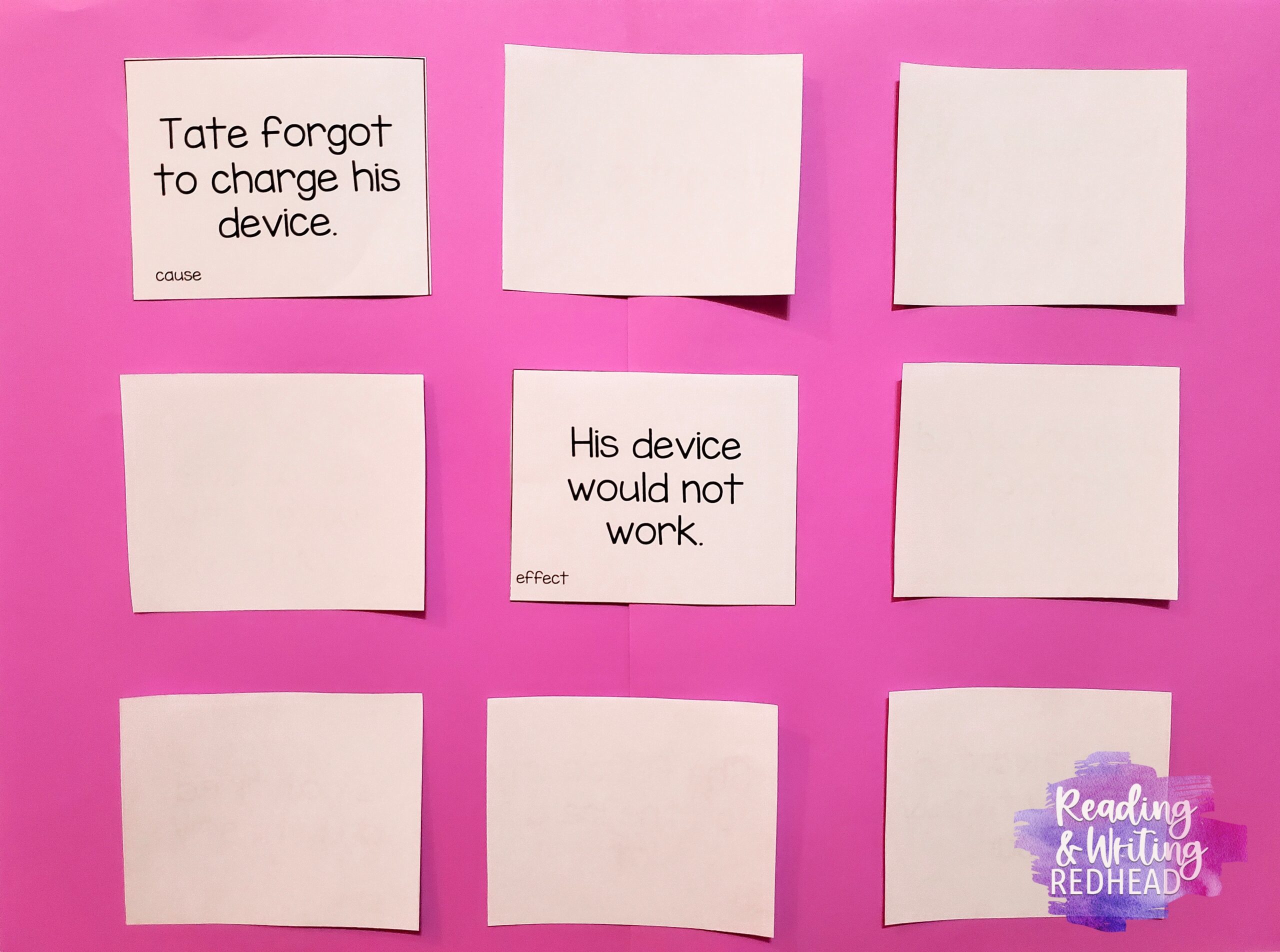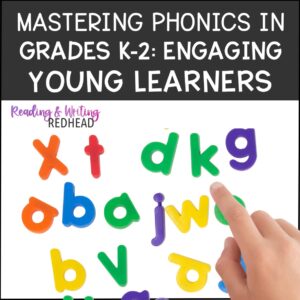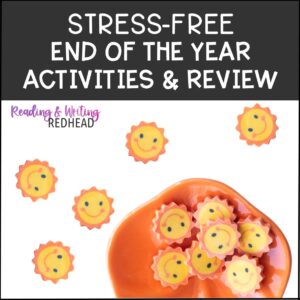
Strengthen Cause and Effect: 7 Valuable Strategies for your Readers
Helping students grasp cause and effect is a crucial step in their reading comprehension journey. Check out these 7 practical and engaging activities to make teaching this concept a breeze.
From hands-on projects to interactive games, you’ll find a variety of strategies to fit your classroom needs. Let’s dive in and discover how to make cause and effect click for your students!
Real-Life Scenarios
Discuss real-life situations and ask students to identify the cause and effect. Use examples from their daily lives or news events. For example, if Kate misses the bus, what might be the effect? Students might suggest she has to get a ride to school from her dad or she is late to school.
Cause and Effect Chain
After reading a story, students write a cause on one strip of paper and its effect on another. They then link the strips together to form a chain, visually showing the sequence of events. They can even continue with even more causes and effects for the story.
Here are a few childrens’ books that are great for teaching cause and effect:
- A Bad Case of the Stripes
- The Napping House
- The Case of the Vanishing Little Brown Bats (non fiction)
Cause and Effect Flip Book
Students create a flip book where each page shows a cause on one side and the effect on the other. They can illustrate and write sentences to explain the relationships. This would be good to try after most students have a fair understanding of cause and effect.
Cause and Effect Matching Cards
Write causes and their effects on different index cards (it might help to use different color cards for the causes and effects). Have students work in pairs or small groups to match the cause cards with the correct effect cards. Then bring students back together to discuss their reasoning.
Keep reading for more strategies!

Cause and Effect Picture Match
This requires a little prep work – either print out pictures of causes and effects, use clip art, or draw causes and effects yourself on cards.
Like the previous activity, students could work with partners or small groups, or you can have them work on their own to match up causes and effects. Then get together in small groups or whole class to share what students did and why they matched up certain cause and effects.
Friends and Neighbors: The Helping Game
This game can help teach cause and effect AND help with social emotional skills. Students work on identifying feeling and emotions in others and determine how they can help – real world cause and effect skills. For example, a little girl is sad because she is in the rain (cause) – how can you help her (the effect)?

Ready to Go Activities from Teachers Pay Teachers
Of course, it would be convenient to have ready-to-use activities and resources from Teachers Pay Teachers! This resource makes teaching cause and effect easy and engaging.
With a variety of activities like task cards, games, and worksheets, your students will master cause and effect no time. Designed for flexibility, it works perfectly for whole class, small group, or independent learning. Plus, the included answer keys make it a breeze to manage.
You will have everything you need to differentiate instruction for your diverse learners. Perfect for second graders, these activities can also be easily adapted for first and third grade classrooms.
Let’s take a peek at some of the activities! The first images are from this original Cause and Effect Practice resource.

This shows you a peek of the cause and effect match up – students cut out causes and effects and match them on the the recording sheet.

These cards are from the Cause and Effect game – great to play Go Fish style or you can use them for memory/concentration.

Plenty of no prep activities are included, with answer keys including these multiple choice pages. Great for sub days or a quick brush up of skills!

And another example of no prep pages – just copy these and go. I like to have students check their answers with the answer key (I leave it in a folder at the teacher table or the rug) when they are done.
Even More
Check out these activities, which are from the More Cause and Effect Practice resource:

This activity sneaks in some fine motor practice. Students will cut and match the causes and effects. They can use the included record sheet or if you prefer, on blank paper or in a notebook (they would need to label the causes and effects themselves).

These cards can be used to play a game like go fish or match up, or you can lead a lesson with a pocket chart to support students who need it. Below on the pink, you can see that the cards can be used to play memory/concentration too!


This is a fun alternative for the standard match up cut and glue – have students glue in a notebook and add arrows to show the cause and effect relationship.

This is an easy no prep activity – great for a quick practice, an assessment, or when you have a sub.

These activities (above and below) are also no prep – just print and copy. Students read the cause and fill in an effect or vice versa. It gets kids really thinking!

For even more of a bang for your buck, consider the Cause and Effect Printable BUNDLE, which offers significant savings of more than 23%! This bundle includes all the printable resources you need to reinforce this important concept.
Ready to make a difference in your students’ comprehension? Grab this resource and watch their understanding of cause and effect soar!
Other blog posts you may want to check out:
- Essential Tools for Enriching your Reading Curriculum
- Tips for Teaching Writing
- Unlock and Master ELA Lessons with Engaging Interactive Notebooks
- Capitalization Made Easy: Practical Strategies for Young Writers
If you want to save this blog post for later, pin this Pinterest ready image below!

Let me know if you have any other fun ways to practice cause and effect skills!





